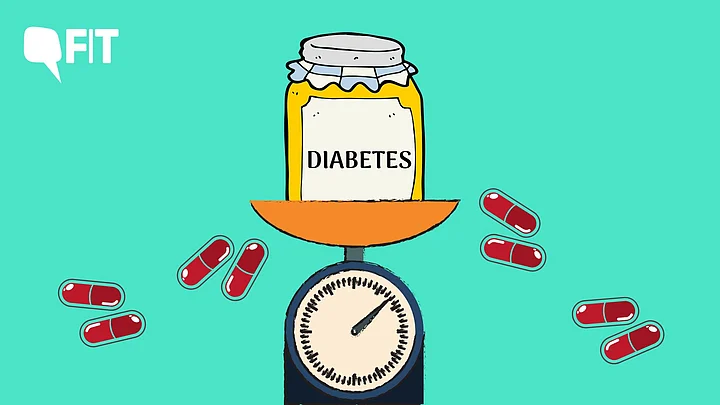What has weight got to do with diabetes?
The amount of information and misinformation on diabetes out there can leave many of us confused and baffled. For instance, is weight gain a sign of diabetes or a consequence? Does obesity contribute to the disease? If it does, then how do certain diabetics experience sudden weight loss?
How does it all tie together? FIT explains.
Weight and Diabetics: The Basics
Diabetes is a chronic metabolic disease in which the person has high blood glucose (blood sugar) level, either due to inadequate insulin production (type 1 diabetes), or because the body's cells do not respond properly to insulin (type 2 diabetes), or both. Insulin is a hormone made by the pancreas that helps the glucose to be used for energy. In its absence, glucose stays in the blood and sugar levels rise.
Genetics and environmental factors are understood to be the causes of type 1 diabetes. But with type 2 diabetes, lifestyle also contributes, and this is where obesity becomes a player.
Diabetes: What’s Obesity To Do With It?
Dr Shaival Chandalia, Consultant of Endocrinologist and Diabetics at Jaslok Hospital and Research Centre, explains that obesity causes insulin resistance in the muscles, liver and fat cells — which leads to a spike in blood sugar levels. In obese individuals, the levels of nonesterified fatty acids, glycerol, hormones, cytokines, pro-inflammatory markers, and other substances that are involved in the development of insulin resistance, increase. Moreover, obesity directly affects the body’s metabolism, causing the fat tissue to release more fat molecules in the blood, which in turn reduces insulin sensitivity.
This is why type 2 diabetes could be prevented and managed with the right lifestyle choices and by maintaining a healthy weight.
But a look at the symptoms of diabetes brings out an interesting observation. Excessive thirst, hunger, fatigue, frequent urination, and, among other things — unexplained weight loss.
How Exactly Does Diabetes Cause Weight Loss?
Simply put, the body needs energy. Since it is unable to use glucose, it starts burning fat and muscle instead. This causes a reduction in weight. This is often an obvious symptom in the diagnosis of type 1 diabetes, but people with type 2 diabetes could also be affected by it.
So whatever may be the contribution of weight to type 2 diabetes, once the sugar goes beyond 200mg/dl — which is the threshold for kidneys to absorb — overweight type 2 diabetics will start losing weight.
So What’s the Takeaway?
Weight does not contribute to your chances of developing type 1diabetes. But being overweight increases your risk of type 2 diabetes significantly because it triggers insulin resistance. In fact, Dr Shaival mentions that ‘type 2 diabetes of children’ is also an emerging category of diabetes because more and more kids in their puberty are becoming prone to the disease, thanks to their unhealthy lifestyles and fast food consumption.
While obesity could contribute to type 2 diabetes, a common symptom of type 1 is sudden and unexplained weight loss.
In either case, however, a healthy lifestyle is important in the management of diabetes. It can help in the efficient administration of insulin in the body, and it could even possibly reverse the symptoms of type 2 diabetes if diagnosed in time.
Now that you know all this, it’s time to beat this silent killer. Get moving!
(At The Quint, we question everything. Play an active role in shaping our journalism by becoming a member today.)
